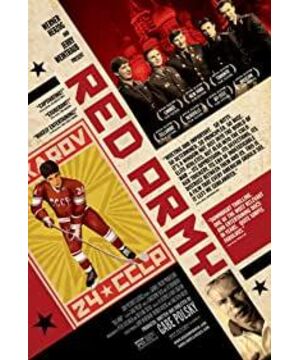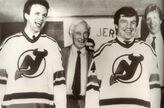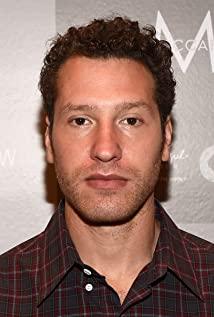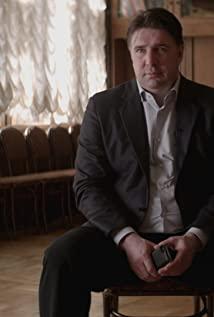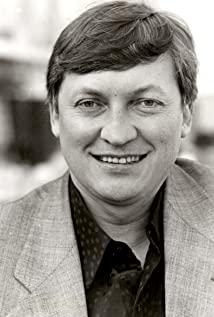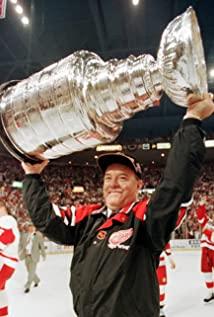Red Army Hockey Team: Fascinating Strange Stories!
A good movie can tell the unfamiliar things fascinating, "Red Army" tells the history in a very simple way, and enters the theme in a very short time, showing the wonderful side of this history, so that you don't know anything about ice hockey. The audience threw their emotions and attention into the film, eager to know the special story of that special era.
"Red Army" is a movie about the "Red Army ice hockey team" in the heyday of sports in the former Soviet Union. The film unfolds from the perspective of Slava Fedisov, captain of the Red Army ice hockey team, and depicts Slava Fedisov's huge transformation from a national hero to a national political enemy in the form of a documentary.
Because of its long history, let’s make a brief introduction first.
Slava Fedisov, the protagonist of the film, once the captain of the all-powerful Red Army ice hockey team, is now the Russian Minister of Sports. It is precisely because of his special status that his performance in front of the camera is more like a duck to water. He can scornfully give the director a middle finger at the beginning of the interview, and immediately change his face when talking about Tikhonov, when talking about his former good brother. Kasatonov's time was mixed. It can be seen from the interviews in the film that he is a politician with real temperament, and because of his own maverick, this documentary about the Red Army ice hockey team becomes more like a Slava Ferdi Sof's biography.
The Red Army ice hockey team, whose full name is CSKA Moscow, has won the most championships in Russia and is also the club with the most championships in the world. The history of CSKA Moscow ice hockey can also be divided into two eras: the first is the era of Anatoly Tarasov; the second is the era of Viktor Tikhonov.
Tarasov, the father of the Soviet system and head coach of the Red Army ice hockey team, developed the sport and wrote several books about it. Tarasov is the soul in the film. Captain Slava Fedisov was the only one who stayed with him when he was at a low point in his life. He was a good mentor and could guide his students from a personality point of view. , dealing with life's tough choices. Tarasov is a creative man who sees ice hockey as a complex and unbelievable game of passing, but he can interpret this complex and unbelievable game in a very simple way.
He can take lessons from chess and ballet and incorporate them into ice hockey. He regards sports as a form of art, and he believes that creativity, agility, and constant thinking are necessary conditions for extraordinary excellence. Under his leadership, the Red Army ice hockey team reached its peak, just like the heyday of the Soviet communist system, everything was in order and flourishing. They have extraordinary feelings for groups and countries.
Dissatisfied with the scoring of the game, Tarasov led the players to withdraw from the game halfway, offended the leader who watched the ball, and was dismissed from his post. Tikhonov, who was a soldier, was appointed by his superiors and began to take over the post of head coach. When he accepted the Red Army ice hockey team, the team was already tacit understanding, and the strength and experience were at their most perfect time, creating greater glory is just around the corner.
However, as a head coach, Tarasov took the initiative to explore the potential of young people, while Tikhonov was a state machine without personal feelings living in the shadow of the system, throwing his temper and beating players, but thinking about letting others to understand yourself. Tikhonov, who has a high self-esteem, is like the Soviet Union who closed the country after being arrogant and conceited, stubborn and blind.
At the end of the film, the institutional problems behind the Red Army ice hockey team gradually emerged, and the film entered the theme.
It is repeatedly mentioned in the film that ice hockey was the most popular sport in the Soviet Union. Because the Soviet ice hockey team represented the highest achievement of the Soviet Union, and the victory of the ice hockey team proved that the Soviet system was the best, which itself was a political activity. For the government, the game was not just a game, it was a propaganda tool that made it clear that the ice hockey team was the best, and because of the Soviet system and socialism, the ice hockey team was the best. In this film, the older generation of Chinese must have a lot of feelings. In a country where everything is inseparable from politics, the pressure on players trained under the national system is not trivial.
Why does the government care so much about hockey players defecting?
Because politically speaking, every time something like this happens, it gets hyped up by the media, and it turns into a victory for the West and a loss for the Soviet Republic. And for a country like the Soviet Union desperately trying to prove that its system is superior to the West, such a thing is intolerable.
Although the Red Army ice hockey team exposed certain system problems, the director did not let the film become a historical disclosure of propaganda and education, but repeatedly applauded the victory of the Red Army ice hockey team. In the editing of the game materials, it can be found that in the director's natural subjective consciousness, there is a kind of affirmation of this milestone success. Although the system at that time was flawed, this graceful tacit training and orderly passing art , really unprecedented.
Director Gabe Polsky is an American citizen of Soviet descent. From this perspective, he describes the Red Army ice hockey team with a strong sense of substitution. He played ice hockey at Yale University, and he has his own understanding of ice hockey. His interview style is neat, his questions are sharp, and he is straight to the point. His understanding of the former Soviet system is also objective after tears.
After the disintegration of the Soviet Union, the Soviet ice hockey team was reorganized in Canada, and the Stanley Cup went to Moscow, etc., all these things were not explained well. But as far as the content of these things is concerned, the subject matter does not matter. The director did not want to expose the Soviet Union's institutional disclosure, but just wanted to start from sports and reflect the real social life.
This is reflected in the director's personal care for the hockey players. During the time when the players went to play in the NHL, the director showed the players' personal emotions very carefully. There is one sentence that sums it up very well, "When you come out of a system, Where your day-to-day life is tightly controlled, and for these hockey players, then you're in a completely different environment, where you're in control of your life in an orderly manner, and you're kind of lost ."
This is also what makes the film so touching. Compared with the collective supremacy of unity and the state under the system, the director's concern for the individual forms a contrast. In the reflection of the newly disintegrated Soviet Union, it is also reflected in the decisions of the players. The team has very little funds, so the players have left Russia. But like Slava Fedisov said, at this stage we seem to have forgotten our patriotism, we are ashamed of the past. We lost something, we lost some pride, we lost our soul.
This part of the film is a bit rushed. President Putin's "Enough, Slava, let's go home" brought memories of emotions into the modern era, and many people may not want to mention those difficult days. Glory and loss can be regarded as a special experience in life, but that period of unhinged days does not belong to a hero.
The film ends with a little boy's ice hockey training, which echoes the training of Slava Fedisov as a child at the beginning of the film. It can also be regarded as a continuation of sportsmanship. Although those days contained many unspeakable secrets, But for the little people under the big system, it is the best choice to do the best you can to live your life.
View more about Red Army reviews


